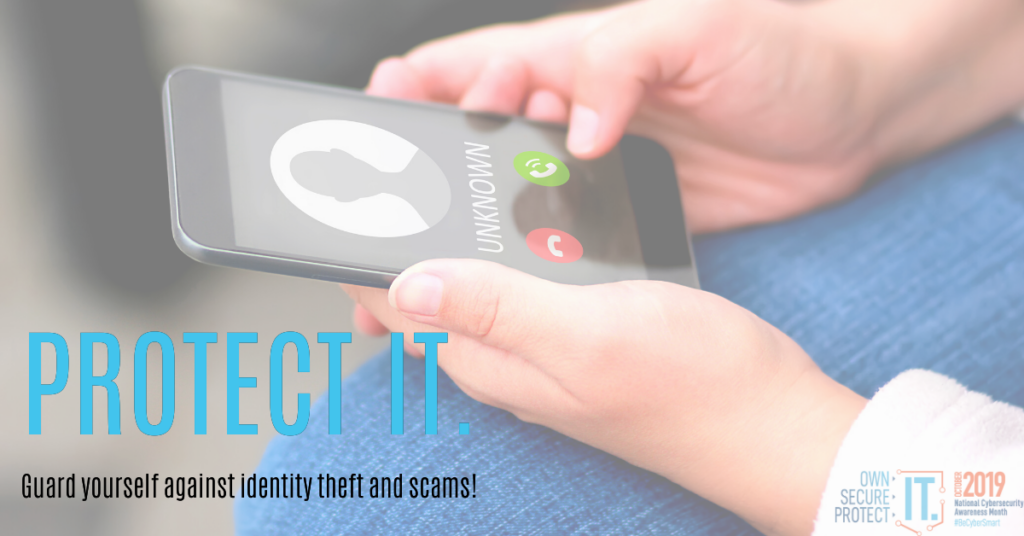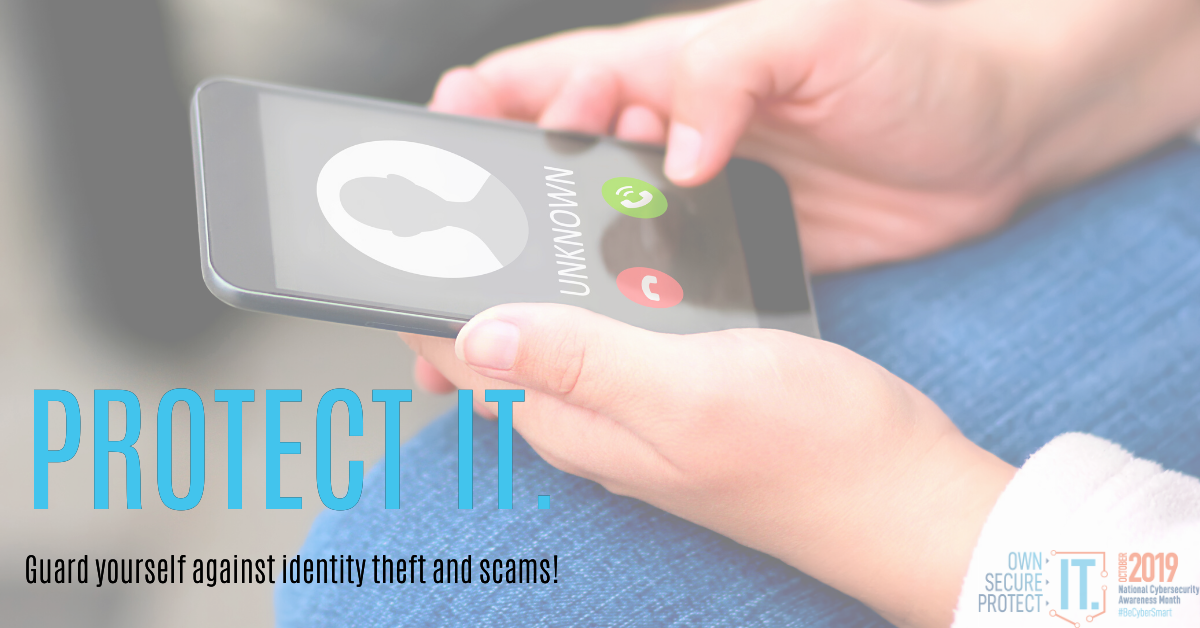Cyber Security Month 2019: Protect It.

Modern technology has done so much to merge our identities with our online presence. While this makes our daily lives easier, it also makes it easier for cyber-criminals to steal your information and commit identity theft. As an example, in 2018 The Federal Trade Commission (FTC) received over 167,000 reports from individuals claiming misused information on a new or existing credit card account. And that’s just credit card information- cyber-criminals can access much more information when left unchecked.
So what are some steps you can take “Protect It?” Here are 5 quick tips to keep yourself safe from online fraud:
-
Practice safe web surfing wherever you are by checking for the “green lock” or padlock icon in your browser bar—this signifies a secure connection.
-
When you find yourself out in the great “wild Wi-Fi West,” avoid free Internet access with no encryption.
-
If you do use an unsecured public access point, practice good Internet hygiene by avoiding sensitive activities (e.g., banking) that require passwords or credit cards. Your personal hotspot is often a safer alternative to free Wi-Fi.
-
Don’t reveal personally identifiable information such as your bank account number, SSN, or date of birth to unknown sources.
-
Type website URLs directly into the address bar instead of clicking on links or cutting and pasting from the email
What if you’ve already become a victim of cyber-crime? Keep record of all the evidence and report it to any of the following government organizations:
-
FTC.gov: The FTC’s free, one-stop resource, www.IdentityTheft.gov can help you report and recover from identity theft. Report fraud to the FTC at ftc.gov/OnGuardOnline or www.ftc.gov/complaint
-
US-CERT.gov: Report computer or network vulnerabilities to US-CERT via the hotline: 1-888-282-0870 or www.us-cert.gov. Forward phishing emails or websites to US-CERT at phishing- [email protected].
-
IC3.gov: If you are a victim of online crime, file a complaint with the Internet Crime Complaint Center (IC3) at https://www.IC3.gov.
-
SSA.gov: If you believe someone is using your SSN, contact the Social Security Administration’s fraud hotline at 1-800-269-0271.
For more cyber security tips and information past cyber security month, check out the National Cyber Security Alliance (https://staysafeonline.org/ncsam/). Stay alert, stay informed, and stay cyber smart!

